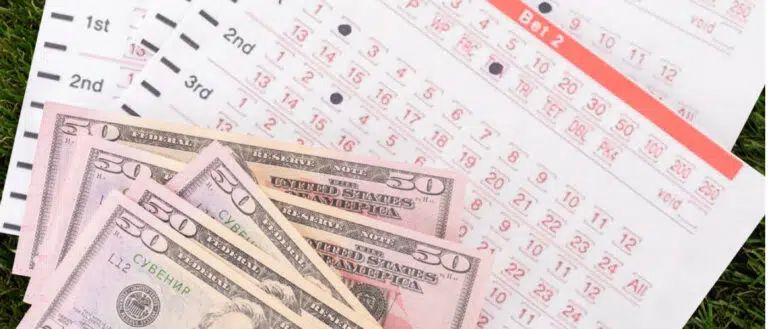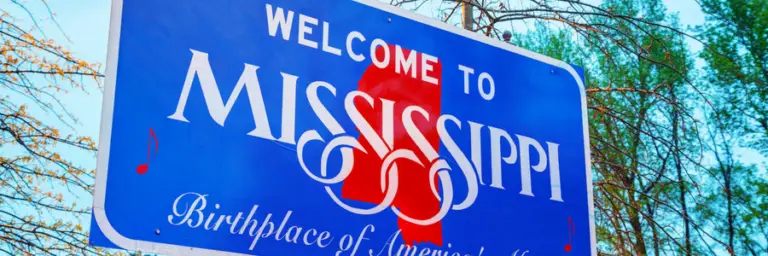7 Sports Betting Stocks Worth Considering Before SCOTUS Decision

Note: I am not a financial advisor, tax advisor, lawyer, doctor or rocket scientist. I do know a thing or two about the state of sports betting in the USA, but that’s about it. Today’s post is not advice; it is just me talking about a few stocks I am considering ahead of the Supreme Court sports betting case. I may or may not buy into one or more of these stocks, but am undecided as of now. Consider your own investment goals, risk tolerance, tax situation, etc. etc.
The Supreme Court of the United States is scheduled to make a ruling on the much-anticipated New Jersey Sports Betting case sometime this year. Most new stories I’ve read anticipate that decision to come down by this summer.
Although the Supreme Court’s ultimate decision will remain unknown until the court itself issues the decision, most media sources covering the matter appear bullish on New Jersey getting a win. A post back in December succinctly sums up why so many believe the Supreme Court may be leaning towards siding with New Jersey.
If the Supreme Court does rule in favor of New Jersey, it will permit New Jersey and other states to enact laws legalizing and regulating sports betting. This could very well start off a domino effect of states legalizing sports betting so as not to be left out of the party.
Additionally, a newly-regulated industry would provide cash-strapped states around the country with a significant new source of tax revenue without forcing politicians to make the unpopular decision to raise taxes on their own residents.
Mind you, these are all a bunch of ifs. What we’re doing right now is called speculating, and speculation doesn’t always pan out the way you would like. But, IF things do go well, it stands to reason that a rapidly-expanding, popular and highly-profitable new industry could do very good things for certain stocks.
There is also a realistic likelihood that the possibility of a favorable Supreme Court ruling is already priced into every one of these stocks, so there is some risk in buying now that the stocks dip on an unfavorable ruling. However, these are all solid companies and I don’t see them imploding any time soon. But again, read my disclaimer at the top. I’m just some guy talking about stocks on the internet. You should do your own research and make your own decisions. Good luck and happy hunting.
With all that out of the way, here are the stocks I will be watching very closely as the Supreme Court decision nears. Whether you want to get in now or wait until after the ruling is up to you, but these are the stocks that I personally will be considering. These are the publicly traded companies that I believe may stand to benefit over the longer term from legal sports betting in the USA, listed in no particular order.
Wynn Resorts
owns and operates a handful of major resorts in Las Vegas and Macau and has been an absolute beast of a stock over the last year. About a year ago, this stock was trading in the $90 range. It is now trading in the $160s.
In fact, we have to go back almost one year exactly to find this stock’s 52-week low. I’ll let you decide whether or not this stock has been overbought, but I do like the company’s fundamentals and potential for the future.
The Wynn resorts in Vegas and Macau do not stand to benefit from sports betting. Nevada already has sports betting and Macau obviously won’t be affected by a US Supreme Court decision. So, why pick Wynn?
My reasoning is the company is currently constructing in Everett, Massachusetts. While there are no guarantees Massachusetts will legalize sports betting even if New Jersey does win its case, the state has been listed among the states most likely to do exactly that.
I also look at the Wynn Boston Harbor as a nice consolation prize for stockholders. Even if Massachusetts never gets sports betting, the construction of a major new resort casino should only help to bolster this stock’s foundation for a long time to come.
Churchill Downs
is best known for running the iconic Churchill Downs racetrack in Louisville that hosts the annual Kentucky Derby, but this company is involved in much more than a single racetrack. Churchill Downs Inc. also operates online horse racing betting site TwinSpires.com, four additional race tracks, six casinos, land-based video poker interests, a multistate network of off-track betting facilities and various B2B operations that support the industry.
I believe Churchill Downs is well-situated to take advantage of legal sports betting in two key aspects. First of all, they already have extensive experience running a betting operation. Horse racing betting is legal throughout most of the United States, betting on the Kentucky Derby is a major annual event, and Churchill Downs race tracks have given the company experience in taking wagers. There is also the website at TwinSpires.com that has given the company experience in doing the same thing online.
This should give Churchill Downs a head start in even the most basic things such as managing information, tracking who placed which bets and who needs to be paid. They also have experience in managing the odds, communicating the odds to customers, handling all that money and still turning a profit on top of all that.
Second, the Churchill Downs operates could very well expand to add sports betting if legislators in those states decide to legalize sports betting. This is likely a way down the road, but the potential is there.
Churchill Downs Inc. operates casinos in Florida, Louisiana, Mississippi, Maine and a racetrack/slots facility in Ohio. Depending on how the laws change in each of these states, Churchill Downs Inc. could benefit greatly from a favorable SCOTUS decision. You can see on Seeking Alpha for another view on how sports betting could impact Churchill Downs.
International Game Technology
is well-prepared to pounce on sports betting if the industry is allowed to flourish in the United States. The average sports bettor probably rarely even sees the name “IGT,” but this company is a giant in the background as it develops and delivers gaming solutions across the entire spectrum of gambling.
The IGT website explains best what they do:
“IGT is uniquely positioned to provide the government-sponsored and commercial gaming industry with proven solutions for gaming, lottery, interactive, and social, through every channel across the spectrum, including retail, web, and mobile.”
In other words, IGT is experienced in the technical, customer-oriented, and backend aspects of all forms of gambling. Whether it is building slots cabinets for a casino in Las Vegas or helping Poland’s state-run lottery operator completely rebuild its instant win scratch cards portfolio, IGT is involved in all things gaming.
IGT has similar experience in sports betting, and that is what has my attention ahead of the much-awaited SCOTUS decision. IGT’s sports betting wing is deeply experienced in assisting operators on every aspect of the betting business from running back office operations to building the interfaces customers use to place their bets.
This experience includes helping operators connect with customers in the retail setting, via betting terminals and online via desktop and mobile interfaces. Their experience even extends to managing telebetting services. IGT also compiles pre-event odds, manages in-play betting events, and helps operators put it all together in the backend with management platforms, risk management, content management, marketing, market planning, and much more.
The easiest way to sum it all up is IGT has experience in and solutions for every aspect of running a sports betting operation. The types of services IGT offers will almost certainly be in high demand as states legalize sports betting for the first time ever. Many established gaming operators in the US will be entering an industry with which they have almost zero experience. There are big opportunities for IGT in the USA.
As a bonus, IGT is active on the international stage. This company will survive just fine even if the USA never does get legal sports betting. IGT’s holding company headquarters are in the UK, and it has operating headquarters in Rome, Las Vegas, and Providence, Rhode Island. The company employs more than 12,000 people.
William Hill plc
WMH:LN
(Unsponsored ADR)
William Hill is one of the largest international players in retail and online sports betting. The company was founded in 1934 and now employs more than 16,000 people around the world. William Hill has retail operations in the UK and Nevada, an international betting site at WilliamHill.com, and licensed websites targeting the regulated Italian and Spanish markets.
William Hill’s US operations are currently limited to Nevada and Delaware. In Nevada, William Hill operates numerous physical sportsbooks inside local casinos. The major Strip casinos manage their sportsbooks internally, but the majority of the smaller casinos across Nevada outsource the operation of their sportsbooks to companies such as William Hill. Today, William Hill operates 108 of 192 sportsbooks in Nevada.
In Delaware, William Hill is “the exclusive risk management manager” for the Delaware sports lottery.
The main thing that caught my eye with William Hill is a statement on the corporate website that the company is “prepared to invest in relevant opportunities” related to the recent talk of sports betting in the United States. With the company’s extensive experience both online and in retail sports betting, growing name recognition in the US, and plenty of resources to support expansion, William Hill is well-positioned to pounce on emerging opportunities in the US.
For example, William Hill operates a sports bar at Monmouth Park racetrack in New Jersey. The corporate website says that a sports bar could easily be converted to a sportsbook if the sports betting prohibition is rescinded in New Jersey.
William Hill’s current US operations only account for 3% of the group’s net revenue. That tells me there is all kinds of potential for the company to grow based on its US business alone.
The one major downside of this sports betting stock is William Hill is traded on the London Stock Exchange and is difficult to buy for most retail investors. However, you can purchase shares of WIMHY over-the-counter in the US. The US version of this stock is an , which means the stock has been issued without the involvement or participation of William Hill. The WIMHY stock trades on low volume and is priced at a fraction of WMH:LN.
The Stars Group
TSG
The Stars Group (formerly Amaya Inc.) is best known as the owner and operator of the world’s largest online poker site, PokerStars. TSG also runs an online sportsbook at BetStars.com, but the bulk of its earnings still derive from poker. Even so, I believe The Stars Group is in a strong position to attack the US market should sports betting be legalized.
PokerStars has already seen some success with its sportsbook despite not even really marketing that product very hard. Simply running a profitable sports betting operation gives the company the experience it needs to expand that offering to the US in a legal environment. And if the US does end the sports betting prohibition, it is difficult to imagine The Stars Group opting not to pounce on the opportunity.
The company does not suffer a lack of funding to support future expansion activities. For instance, TSG reported nearly $110 million in cash and cash equivalents in its .
TSG does have some risk moving into the US market, however. PokerStars refused to leave the US market for several years after the passage of the Unlawful Internet Gambling Enforcement Act of 2006 (UIGEA) and is still dealing with the blowback of that decision years later. For example, lawmakers in California in 2016 seeking to ban PokerStars from entering the online poker market in California for five years should the state ever pass legislation legalizing online poker.
On the other hand, PokerStars did successfully enter the New Jersey online gambling market after New Jersey passed legislation legalizing online poker and casino gambling. It is difficult to predict whether or not lawmakers in other states will take PokerStars’ history into account when issuing sports betting licenses in the future, but it is a risk worth noting.
MGM Resorts International
operates hotels and casinos around the world. Some of its premier properties include Las Vegas icons such as the MGM Grand, Mandalay Bay, the Mirage and Bellagio. The company has been expanding in recent years to include the construction of the MGM National Harbor in Maryland, MGM Springfield in Massachusetts, MGM Macau in Macau and the upcoming opening of the MGM Cotai in Macau.
A growing presence in the US and recent expansion to states outside of Nevada place MGM in a position to benefit from legalized sports betting in Massachusetts and Maryland. Massachusetts also made it onto the list of states likely to legalize sports betting in that previously-mentioned Eilers & Krejcik Gaming research report.
As an added benefit, MGM stock has been digging itself out of a hole since sinking to an all-time low of $1.81 in 2009. That stock now trades at $35.03 at the time of this writing and the company seems to be in a much better place now. Considering its resurgence plus the possibility of massive growth in Macau may end up making MGM even if the USA never does get sports betting.
Boyd Gaming Corporation
operates two dozen casinos across numerous states. This includes twelve casinos in Las Vegas plus properties in Illinois, Indiana, Iowa, Kansas, Louisiana, Mississippi and soon in Pennsylvania. If legal sports betting achieves mass adoption in the United States, Boyd Gaming has plenty of properties to take advantage of changing laws.
Something else to consider is if the Supreme Court rules in favor of New Jersey, the most likely path forward will be individual states coming up with their own sports gambling laws one by one. Some states will likely pounce on the opportunity, others will come around more slowly and some may never legalize sports betting.
The geographic spread of Boyd-owned casinos may improve the odds of Boyd being able to benefit early in what will likely be a long, drawn-out process as the United States transitions into a more betting-friendly country.
Boyd Gaming also has some experience managing sports betting in Nevada both as a retail operator and as a mobile betting app. The B Connected app allows guests located inside Nevada to bet on sports through the official app. This experience will serve Boyd Gaming well if and when additional states legalize sports wagering.







